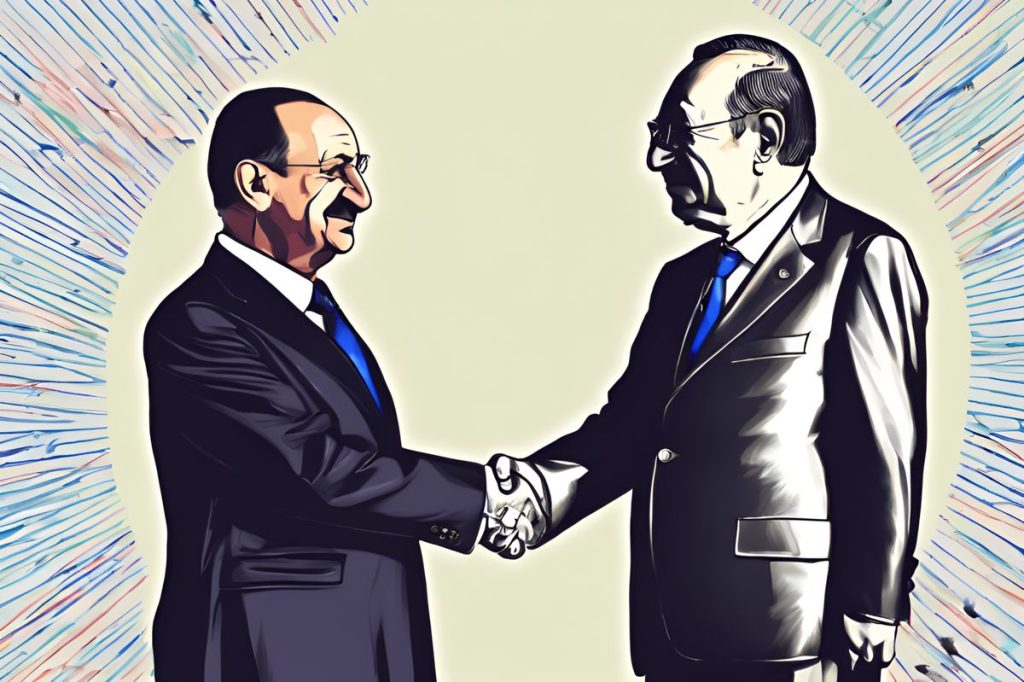Cyprus, led by President Nikos Christodoulides, is open to negotiating with Turkey on energy and regional issues, aiming for stability and cooperation in the Eastern Mediterranean. The diplomatic approach signals a commitment to peaceful resolution and collaborative efforts based on international law.
What is Cyprus’s approach to negotiating with Turkey over energy and regional issues?
Cyprus, led by President Nikos Christodoulides, is open to dialogue with Turkey to establish energy cooperation and resolve the Cyprus problem based on international law. Constructive negotiations aim to delineate maritime boundaries and foster regional stability, signaling a commitment to peace and collaboration.
Diplomatic Dialogues
As the island nation of Cyprus navigates through its complex political landscape, President Nikos Christodoulides has expressed a willingness for open dialogue with Turkey regarding energy and the greater Cyprus problem. The Greek Cypriot side, under President Christodoulides’s leadership, is seeking to engage Turkey in constructive negotiation with the goal of reaching a mutually beneficial resolution. This openness to talks was conveyed during an event marking the 20th anniversary of Cyprus’ accession to the European Union.
The president’s recent communications with the United Nations Secretary-General’s Personal Envoy, Maria Angela Holguin, underscore the urgency and importance Cyprus places on these negotiations. The anticipation of positive progress is high as another meeting with Holguin is scheduled, demonstrating a clear commitment to exploring every avenue to jumpstart peace talks.
Regional Stability and Cooperation
At the heart of the discussions is the broader issue of regional stability and the relationship between Greek and Turkish Cypriots, as well as the neighboring countries. With Greece’s Prime Minister Kyriakos Mitsotakis set to visit Ankara, there is hope that these diplomatic engagements could lay the groundwork for future cooperation, especially in areas like energy, which hold significant potential for partnership rather than conflict.
Christodoulides has been vocal about Cyprus’s readiness to cooperate with Turkey, aligning with international law and the Convention of the Law of the Sea to delineate maritime boundaries. This approach emphasizes dialogue over discord but is contingent on finding a comprehensive solution to the Cyprus problem. Despite the challenges, the Cypriot president has reiterated his commitment to finding a path forward, stating that “there is no other option.”
Maritime Boundaries and Legal Frameworks
The issue of delineating maritime boundaries is a critical aspect of the negotiations, with the Greek Cypriot side showing a consistent willingness to establish these borders based on established international law. The willingness to negotiate even before a comprehensive solution to the Cyprus problem highlights the proactive approach of the Greek Cypriot administration. However, the lack of response from Turkey in this aspect has been a sticking point, with Christodoulides calling out Turkey’s refusal to engage in dialogue.
Turkey’s stance on energy cooperation, as indicated by statements published in international media, presents an opportunity for collaboration in the field of energy. This shift towards viewing energy resources as a joint venture rather than a point of contention offers a glimmer of hope in the ongoing efforts to resume diplomatic talks and potentially bring about a solution to the longstanding Cyprus issue.
Looking Ahead
President Christodoulides has remained steadfast in his belief that resuming discussions is paramount. The current status quo is deemed unfavorable not just for the communities on Cyprus, but also for the broader interests of the EU and the regional geopolitical dynamics. It is evident that the desire for dialogue extends beyond mere rhetoric, fostering a sense of optimism for a receptive response from all involved parties.
What is Cyprus’s approach to negotiating with Turkey over energy and regional issues?
Cyprus, led by President Nikos Christodoulides, is open to dialogue with Turkey to establish energy cooperation and resolve the Cyprus problem based on international law. Constructive negotiations aim to delineate maritime boundaries and foster regional stability, signaling a commitment to peace and collaboration.
What are the diplomatic dialogues between Cyprus and Turkey focused on?
The diplomatic dialogues between Cyprus and Turkey, under President Christodoulides’s leadership, are primarily focused on establishing energy cooperation, resolving the Cyprus problem, and promoting regional stability. These discussions emphasize the importance of adhering to international law and seeking mutually beneficial solutions through constructive negotiation.
How important is regional stability and cooperation in the discussions between Cyprus and Turkey?
Regional stability and cooperation are central to the discussions between Cyprus and Turkey, with a focus on improving the relationship between Greek and Turkish Cypriots and neighboring countries. The goal is to foster collaboration, particularly in areas like energy, to transform potential conflicts into partnerships. Both sides are committed to exploring peaceful resolutions and enhancing regional stability through diplomatic engagements.
What are the key aspects of the negotiations regarding maritime boundaries and legal frameworks?
The negotiations between Cyprus and Turkey include discussions on delineating maritime boundaries based on international law, particularly the Convention of the Law of the Sea. The Greek Cypriot side has shown willingness to engage in these negotiations proactively, emphasizing the importance of dialogue over discord. While challenges remain, there is optimism for progress, especially in the realm of energy cooperation as a potential avenue for collaboration rather than conflict.

